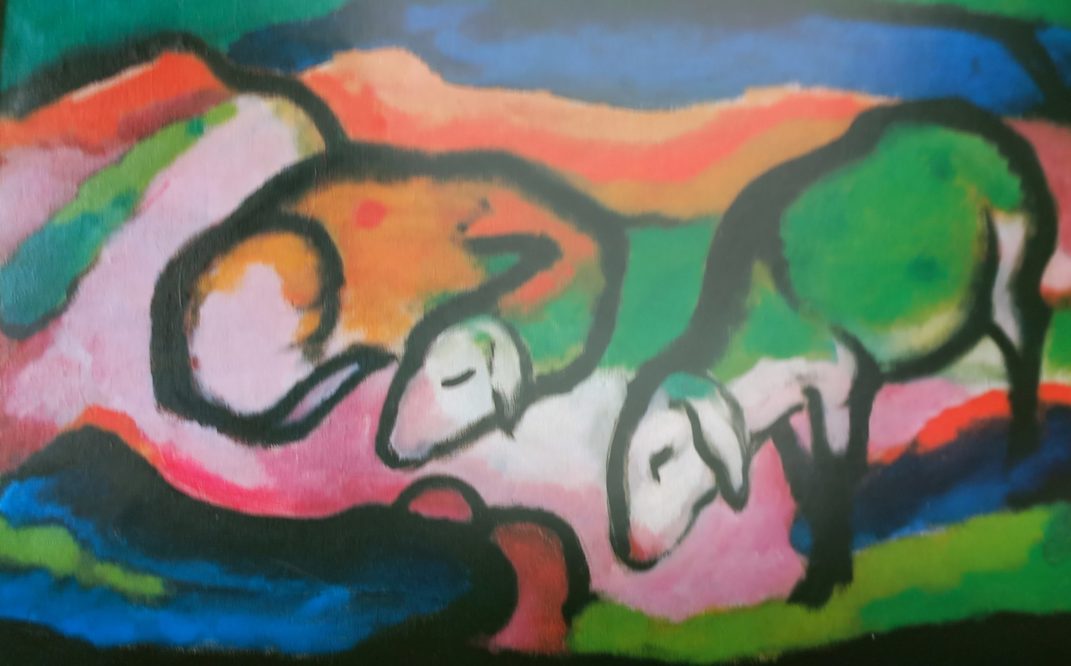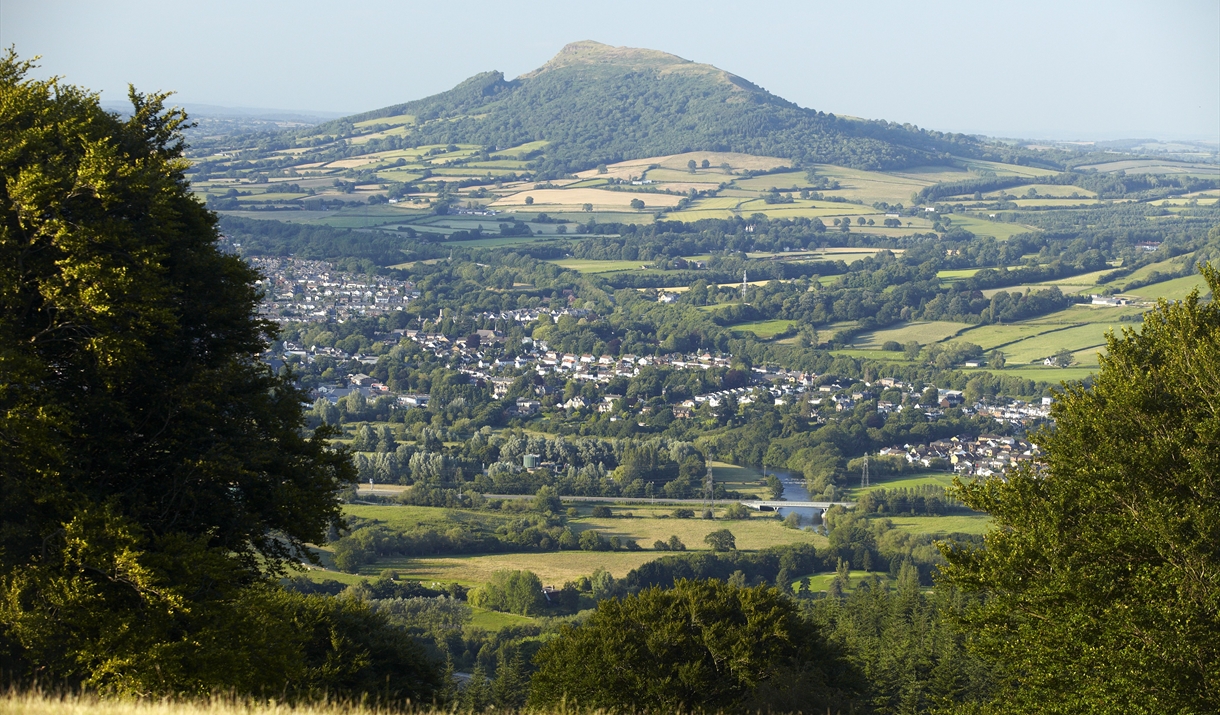Letter from Llanvihangel Crucorney

Nigel Jarrett
When I was a newspaper sub-editor dealing with reports from the county’s young farmers clubs – there’s one here – it was always amazing to see how self-sufficient and resourceful they were. I supposed that when you lived miles from anywhere amidst an untold number of acres and were working all day and every day, you had to be.
As well as de-horning cattle, mucking out cattle sheds, and totting up the number of ewes served by sundry rams rampant, members put on plays, took part in debates, entered raft races on the Usk, and – for all I knew – held monthly seminars to discuss liturgical music of the Middle East.
To check out the standards achieved in these extra-agricultural activities, I reached for my drama critic’s hat and drove down serpentine B roads on a wintry night like those we’re experiencing now to review one of their theatrical productions.
Raising laughs
I didn’t recognise the play’s title but I recall hoping that it wouldn’t be a farce – the genre I mean, not the quality of the performance, though I’d reviewed farces in which the interpretation was funnier than the unfolding story; at least, on those occasions the actors raised as many laughs by unintentionally knocking each other over as they did when a vicar appeared on the landing in his Y-fronts.
No, this was serious effort involving the then avant-garde device of having a cast member sit undetected in the audience for twenty minutes and then loudly reveal himself as a protester, or some such.
When this outburst occurred, an old lady near me had to be accompanied to the exit, either having sensed imminent, non-theatrical trouble or having expected to sit through nothing more distressing than Charley’s Aunt and been culturally short-changed.
Remote
It wouldn’t have surprised me if the cast had shifted to extemporising mode and convinced the rest of us that the disgruntled and departing punter was also in on the act. Thus would a remote village hall have come to resemble, if only for a few scary minutes, Lee Strasberg’s Actors’ Studio in New York.
I’d never attended any of the YFC debating sessions, but I have no doubt that the speakers would have made a decent fist of the proposition that the influence of Ryan and Ronnie was at least as great as the influence of Ryan on Ronnie.
It’s the sort of thing compulsive debaters tackle, whether they farm the land or not. Maybe at this very moment, some YFC somewhere is planning to discuss the late films of Alain Resnais. Or German Expressionist painting.
Apart from nights out down country lanes or at other places where the YFCs are to be seen in disguise, as it were, the best sightings can be had at agricultural shows, where they usually maintain a presence if only to signal to bemused ‘townies’ that they exist.
One young farmer told me she planned a career which required her to wear a white overall, defying me to suggest that in the company of others like her she would be called out to deal with individuals who had momentarily ditched their senses.
She was in fact referring to ‘stock-judging’, something I’d only ever witnessed at Usk Show. Judging stock appeared to consist in prodding animal hindquarters or standing to one side and assessing the likelihood of being tossed six feet in the air by a hefty bull, both procedures of the kind that might make those other white-coated characters rush to your aid with a sedative.

Serious walking
This is walking country, as though it needed to be said, and serious walkers will know that carrying spare soles with them in case the upper and lower parts of their boots separate on route like the jaws of a basking shark is not taking precaution too far but a means of avoiding a fright.
If it happened while you were on the summit of Ysgyryd Fawr in winter you wouldn’t want to hop back to the B4521 with encroaching frostbite or, at the very least, a ‘wetter’, which is what we mudlarks in the Eastern Valley of Gwent called the result of leaking footwear.
Everyone has a near-disaster story to do with walking. Mine stems from when I was invited as a journalist to accompany a group of worthies celebrating the introduction of a new law aimed at giving teenage troublemakers something useful to do rather than incarcerating them.
Youth detention, like adult imprisonment, simply turned offenders into harder, more determined re-offenders. Contrite they were not. Society just had to live with it. Well, that was – and still is in some quarters – the theory.
Reprobates
Probation officers organised a weekend in the hills to the west of here. Pillars of society were invited to prop up the exercise, including me (representing the Fourth Estate), a clergyman, a teacher and a couple more. We were in charge of a dozen reprobates on the verge of making crime pay and the idea was to walk their dodgy proclivities out of them.
Never having hiked ‘seriously’ before, I bought a rucksack and a pair of cheap boots from Millets. I already had a Henri Lloyd waterproof jacket, which I wore while covering rugby in the icy Heads of the Valleys to serve as protection whenever I was pelted with snowballs or water-bombs by supporters critical of my previous week’s match report.
Night hike
I was then dropped off at some remote centre by my wife, who probably didn’t expect to hear from me again. “I’ll see you when I see you,” she said, that philosophical expression masquerading as the sanguinary obvious.
Within two hours I was on a night hike with our charges, some of whom were in their element. They didn’t like walking in a line. They didn’t like walking. But they loved the dark.
The most dramatic part of the story should be about the time we got the youngsters to bed on the second night only to discover the following morning that one of them was missing. My journalist’s antennae twitched madly but alarms were raised and the police found the absconder thirty miles away that afternoon. He was reprimanded but in my view deserved a medal.
Thirty miles by night across the hills in daps without hitching a lift! Phenomenal. I hope he’s since been charity-climbing Kilimanjaro.

Strenuous
My boots held up. I was still wearing them after six years of strenuous walking, initiated by that strange weekend on Bal-Mawr and the Fyddwg Ridge with deprived kids who were being offered a different kind of outlook.
So, no gaping soles for me. My calamity was the result of not keeping watch on the gas under an four-gallon vat of custard on night three. You can’t actually see the burn in burnt custard like you can on a round of toast or a fish finger, but you can taste it. You can’t scrape anything off to make it edible, either. You can barely scrape off the black layer at the bottom of the pan; it’s akin to deep mining.
I was tried by my peers and found wanting. Unanimous verdict. My penalty was to drive our minibus into town and bring back seventeen cod-and-chips – six with salt and vinegar, three with just salt, four with just vinegar, three with curry sauce, and one with ‘those lovely crunchy bits they fish out of the fat, sir’.
I got off lightly. I think the ‘sir’ was sarcasm from someone with street cred beyond his years.
Now – is there a Christmas event this year at Llanvihangel Court, with hot chestnuts, craft stalls, and music? On its lawn one summer, a group of strolling players gave a creditable performance of Under Milk Wood, Dylan Thomas’s play for voices. The laughter still echoes.
This year marks the 70th anniversary of the date when the work was first read on stage at The Poetry Centre in New York. And at the nearby Black Mountain Jazz club in the new year, composer Stan Tracey’s musical depiction of Under Milk Wood will be revived by his band leader son, Clark, and friends. Llareggub, Dylan Thomas’s location of the mind, and embedded Monmouthshire villages.
Mmm – there are probably similarities.
Support our Nation today
For the price of a cup of coffee a month you can help us create an independent, not-for-profit, national news service for the people of Wales, by the people of Wales.





